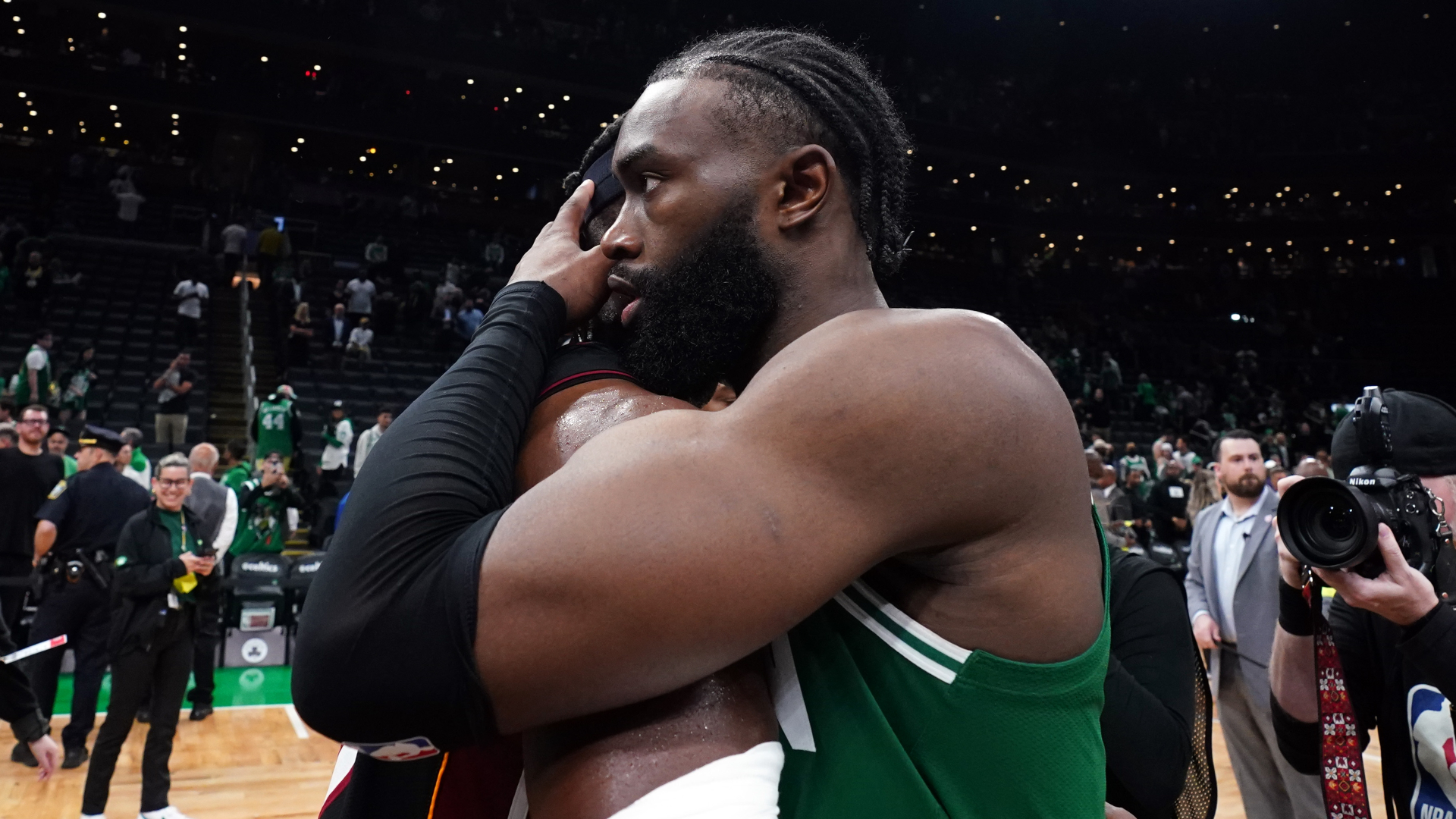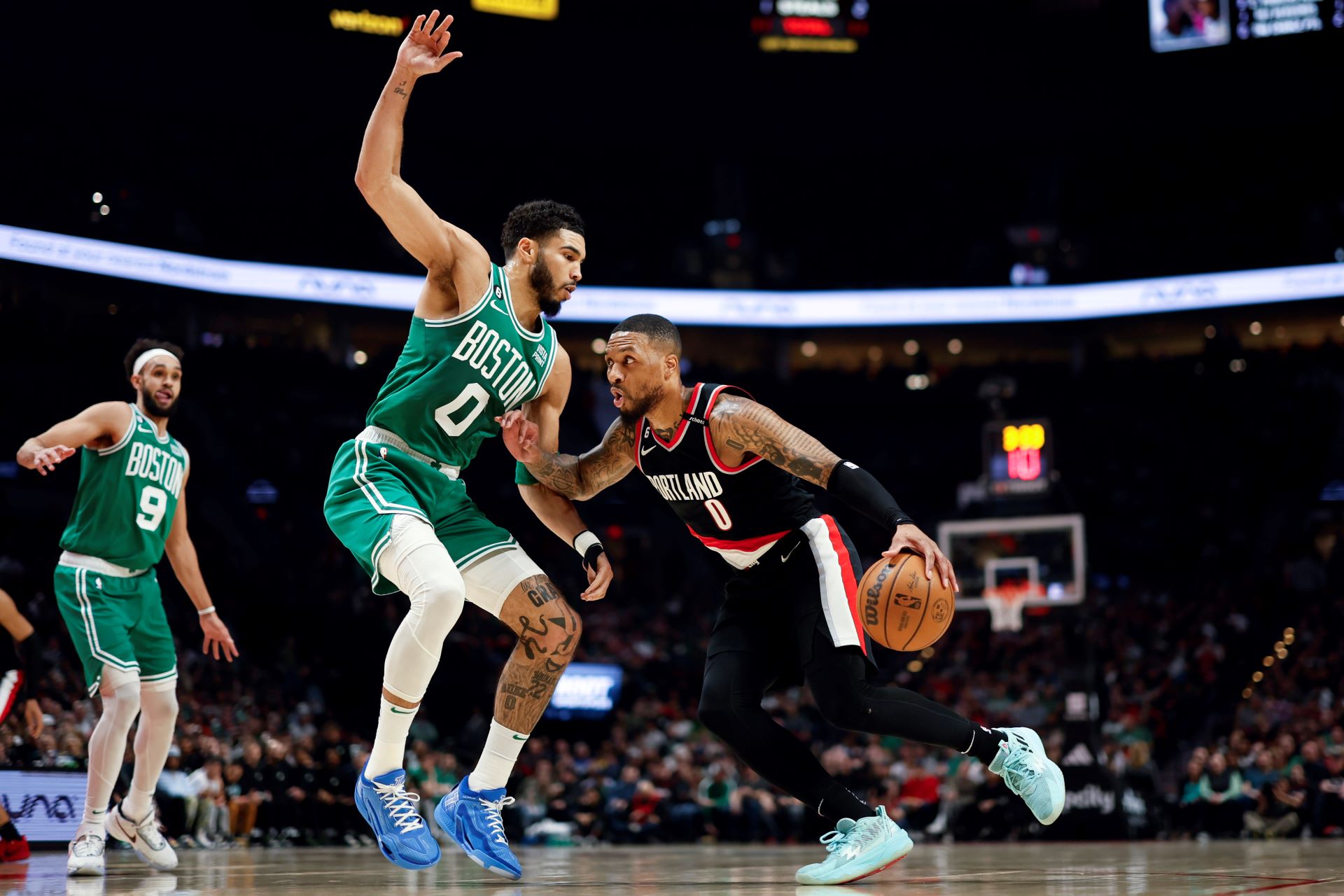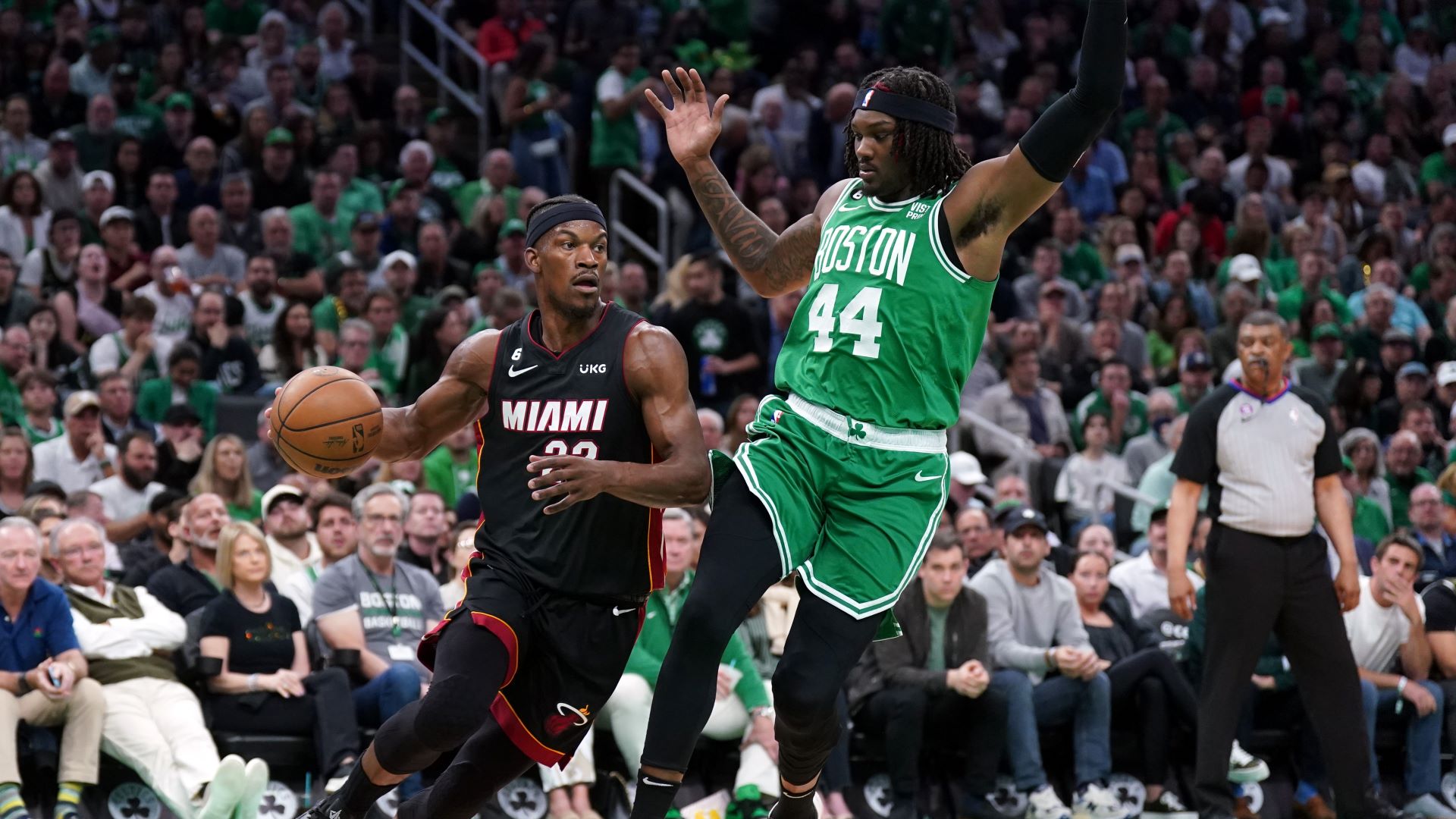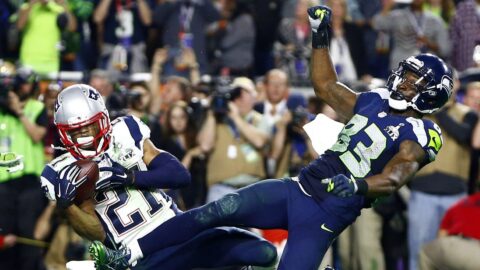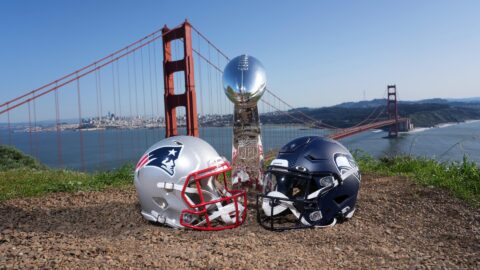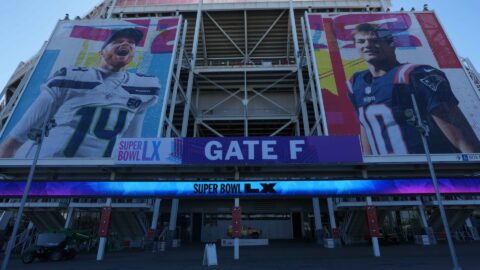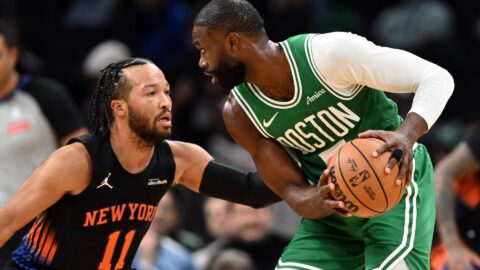Malcolm Brogdon wasn't part of the Celtics team that went to the NBA Finals a year ago. The veteran's first season in Boston, though, didn't match up with what he saw from the C's prior to joining the squad.
Brogdon and the Celtics saw their season come to a premature end Monday night, as they were on the wrong side of a beatdown from the Miami Heat in Game 7 of the Eastern Conference finals.
Ultimately, a team that prided itself on offense and 3-point shooting went cold at the very worst time. The Celtics scored a season-low 15 points in the first quarter and missed their first 10 attempts from behind the arc. Brogdon, however, believes the Celtics left themselves with far too little room for error on the offensive end because of how the team's defense regressed from last season to now.
"It was the issue," Brogdon stated Monday night in his postgame press conference. "I think this was a team in the last year that prided themselves on defense. I think defense was our calling card. This year, offense was our calling card. I don't think you can win championships with a high -- with a better offense than you have defense."
The Celtics are the latest example of that. Only three teams scored more points in the regular season, and only Sacramento had a higher offensive rating than Boston. The Celtics still had the NBA's fifth-best defense by points allowed during the regular season (111.4), but they weren't really in the same neighborhood as they were a year ago when Ime Udoka's team led the league in points allowed, yielding just 104.5 points per game.
Certainly, there was a philosophical shift. Udoka made defense a priority, while Joe Mazzulla -- who stepped in right before the season began -- was all about offense. The rookie head coach often pointed to the team's offense as a reason for struggles on defense, and it wasn't until the Celtics had their backs against the wall that they really dug in on the defensive end.
Until Game 7 of the conference finals, that is.
"I think pretty much we were the best offensive team in the league, for sure," Brogdon said. "Depth, you can talk about the ways we can score, our versatility on offense, really one through seven, one through eight.
"But defensively, I thought we had the versatility, I thought we have the talent defensively, but in any given night, we would let go of the rope and have a lot of breakdowns on that end."
Ultimately, that falls on the players, but one can't help but wonder whether Brogdon's assessment is a thinly veiled shot across Mazzulla's bow, too. It's not completely dissimilar to Marcus Smart wondering aloud early in the postseason why the Celtics struggled to do the little things at times.
It was also telling that Smart and his teammates were "ecstatic" when Mazzulla made the long overdue move to start Robert Williams III in the Philadelphia series, a move that strengthened the Boston defense.
"I'm glad that Joe made that adjustment and we did it, because what a difference," Al Horford told reporters on May 11.
The Celtics removed the interim tag from Mazzulla in February, giving him a contract extension as the main guy. When it looked like the Celtics were on their way to being swept in a listless performance against Miami, though, Mazzulla's job might have been on the table. Only time will tell whether he bought himself another year by just getting his team to Game 7, but the Celtics ultimately fell short against a team they should have beaten.
Whether there's a coaching change or just a philosophical shift, Brogdon's comments seem to shed some light on which way the players -- the ones who are still with the club in the fall -- would like to see the team go when it comes to prioritizing defense again.

